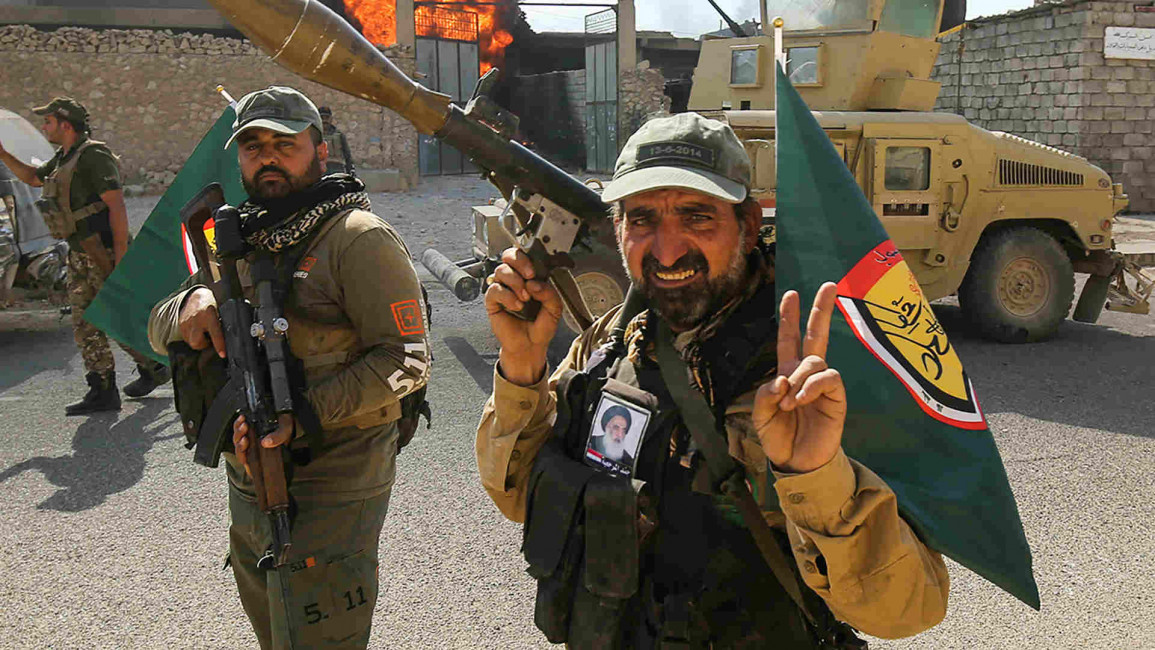Iraq's Shia militias formally integrated into state's security apparatus
Iraqi Prime Minister Haider al-Abadi issued a decree on Thursday formalising the inclusion of Shia militias into the government’s security forces, Reuters reported.
Members of the Popular Mobilisation Forces (PMF), which are mostly Iran-backed, will be given equal pay to military members. They will also be subject to the laws of military service and now eligible to enrol in military institutes and colleges.
The government decree comes two months ahead of a general election in Iraq. The PMF is popular amongst Iraq’s Shia majority, and could sway voters.
The PMF was formed in 2014 after the Islamic State seized one-third of Iraqi territory. The paramilitaries backed - and often supplanted - Iraq’s military as it ejected the Islamic State from various parts of the country.
Mass army defections following the Islamic State seizure of Mosul in 2014 gave thereafter the PMF a crucial role in the fight against the Islamic State.
Iraq declared victory over the Islamic State in December 2017. But the 60,000-strong PMF are still deployed in many predominately Sunni areas in the country.
In May last year, the German Der Spiegel published a report titled “Not heroes, but monsters” documenting Shia forces abusing Sunni Arabs in Mosul.
In 2016, the PMF – particularly the Badr Organisation and the Hizballah Brigades – allegedly arrested and beat hundreds of Sunni men during the offensive to retake Mosul. Human Rights Watch said other Islamic State-held towns liberated with the PMF followed similar patterns.
That same year, Iraq’s parliament passed legislation bringing the PMF under government control. The law stipulated that they report directly to the prime minister, who is a Shia under Iraq’s power-sharing formula.
The PMF leadership routinely meets with the commander of Iran’s Quds Force and the Islamic Revolutionary Guard Corps (IRGC).
However, Iraq’s Shia militias typically fall into one of three categories: those with ties to Iran, those who follow Sistani and those who follow the Shia religious clerics in Iraq. Only the former, the largest of the blocs, is pro-Iran.
Follow us on Twitter: @The_NewArab


![President Pezeshkian has denounced Israel's attacks on Lebanon [Getty]](/sites/default/files/styles/image_684x385/public/2173482924.jpeg?h=a5f2f23a&itok=q3evVtko)



 Follow the Middle East's top stories in English at The New Arab on Google News
Follow the Middle East's top stories in English at The New Arab on Google News


